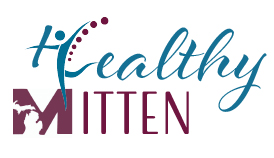
Health & Happiness
Evidence is growing that the connection between mind and body is real, leading to well-being and physical health.
Most of us want to live a long, happy and healthy life, one without disease. But the absence of disease is not necessarily equal to good physical health (just like if you don’t have depression, doesn’t mean you are optimistic). Most research has been on researching the disease itself. It’s assumed that if we can address disease itself, we will achieve optimal health.
But there is a real practical and ethical value in focusing on the positive side of health and identifying those attributes and conditions in life that make it possible to be happy AND healthy.
How Chiropractic Affects the Brain and Nervous System
Haavik’s research suggests that a dysfunctional spine segment (vertebral subluxation) leads to a change in information influences how the brain perceives and responds to all other sensory information.
The brain uses the spine to receive information from the rest of the body. A dysfunctional spine segment can result in faulty information, which disrupts the brain’s ability to process and integrate sensory information. The brain uses the spine as an indicator of your core body position.
Chiropractic adjustment restores the proper processing and integration of sensory information to the brain which in turn restors control of our muscles.
The straw that breaks the camel’s back.
Misalignment is often a result of a compilation of small events and habits that negatively impact the spine over time.
A small sample of these straws can include: poor sleep, awkward posture, repetitive moments, using improper technique when lifting objects, being unaware when stepping off a curb, and minor accidents.
These straws build up, which in turn affects how the brain processes all other incoming sensory information. The brain goes into high alert as a response and changes the way the brain perceives future pain signals. This alters the reality of the brain and its understanding and relationship to the body and the world around it.
These kinds of maladaptive (bad) plastic brain changes are through to be involved in the initiation of chronic pain conditions.
100% Mindfulness Will Make You More Happy
“Meditation is quite simply mental hygiene: clear out the junk, tune your talents, and get in touch with yourself,” writes Emma Seppala, the Director of Stanford University’s Center for Compassion and Altruism Research and Education.
Meditation is one way to practice returning to the present moment. There can be a lot of hesitation and misconceptions about what meditation is and isn’t.
A very simple meditation is to focus on each breath you take. Take 10 deep breaths in through your nose and out through your mouth. Focus on the feeling and sensation of taking a breath. Repeat this 2-3 times throughout your day.
Try doing this exercise when you begin noticing your mind starting to wander throughout the day and it will help re-orient you into the present.
• Take a break from technology, get out into nature without a schedule
• Give full attention on a project for 10 minutes (it’s good practice to do on a project you don’t want to do). Notice every detail.
• Truly experience pleasure – be 100% present. Research shows that learning to bask in pleasurable experiences will also help to extend feelings of satisfaction and result in less cravings.
Be Mindful Today
Havard research psychologists Matthew Killingsworth and Daniel Gilbert studied 2,250 people and found that adults spend only 50% of their time in the present moment. (We’re mentally checked-out 50% of the time)
This mental wandering appears in the form of being distracted by events that happened in the past, could possibly happen in the future or may never happen at all.
Most importantly, the research suggested that this mind wandering was the root cause and not a consequence of unhappiness.
Often people get caught up in the idea that some future event will bring them happiness. This may be a promotion, the weekend, a vacation, or some other event.
Research shows remaining present—(instead of jumping from task to task) – makes you more productive, happier, and more charismatic. Being completely absorbed into what we are doing (whether you like the task or not) creates more productivity and happiness.
They found when we are in the present moment, we are the happiest – because we fully experience the things going on around us. We slow down, delve into conversations and are fully engaged in projects.
